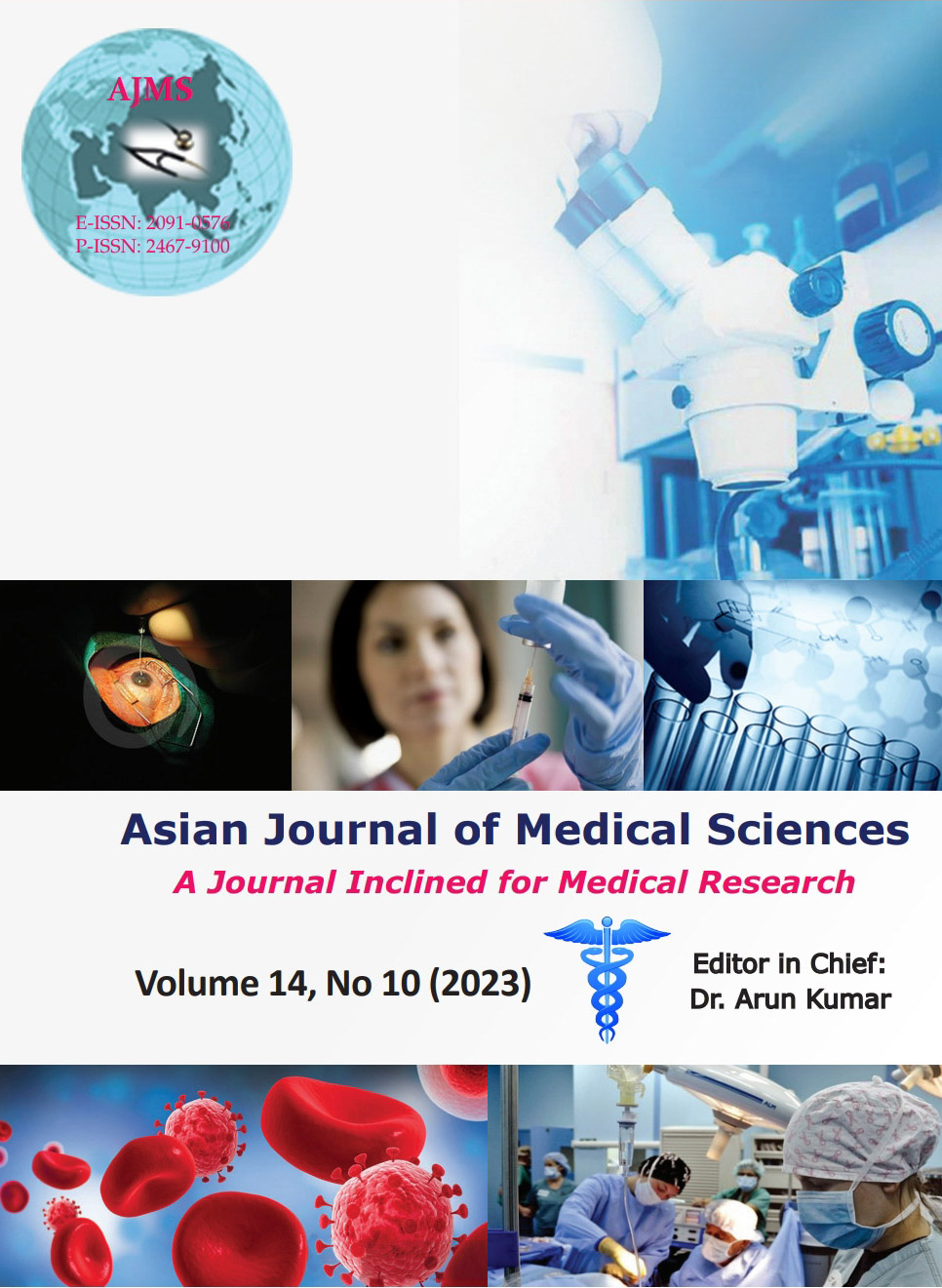Predictors of symptom persistence and respiratory sequelae in respiratory symptomatics presenting to a post-COVID clinic
Keywords:
COVID 19; Post-COVID; Respiratory sequelaeAbstract
Background: COVID-19 infection causes the persistence of respiratory symptoms and functional impairment, which require prolonged follow-up care. Identification of individuals at risk for respiratory sequelae helps in optimal follow-up and early identification of complications.
Aims and Objectives: The present study aims to find the clinical profile, predictors of respiratory symptom persistence, and functional impairment in post-COVID patients.
Materials and Methods: Prospective observational study was done on patients who attended the post-COVID clinic in the pulmonary medicine outpatient department (OPD) in a tertiary care center in central Kerala from June 2021 to August 2021 with persisting respiratory symptoms after becoming COVID-19 negative and evaluated with a proforma regarding clinical history and symptoms. Patients were followed up at one and 3 months. Clinical, functional, and radiological factors were assessed. They were reassessed at 3 months. Spirometry was done in those with persistent symptoms at 3 months. High-resolution computed tomography (CT) was performed in those with significant desaturation on 6-min walk test (6MWT).
Results: Of 348 patients, 6 died, 4 lost follow-up, 12 patients had alternative diagnoses during the study period. About 29.4% were symptomatic at 3 months. CT severity score improved over 3 months and the proportion of patients with exercise-induced desaturation in 6MWT decreased over 3 months. All patients showed a restrictive abnormality except two. A significant association was found between the persistence of symptoms at 3 months and type 2 diabetes mellitus, severe illness during the initial phase, persistent elevation of inflammatory markers, and increased radiological involvement. Alternative diagnosis and treatment-related complication was seen in 12 patients, which included infections such as tuberculosis, nocardia and fungal infection, malignancy, CTEPH, and post-intubation tracheal stenosis.
Conclusion: A minor group of severe COVID-19 pneumonia survivors have delayed resolution of symptoms with functional impairment. Improvement in spirometry lags behind clinical and radiological improvement.
Downloads
Downloads
Published
How to Cite
Issue
Section
License
Copyright (c) 2023 Asian Journal of Medical Sciences

This work is licensed under a Creative Commons Attribution-NonCommercial 4.0 International License.
Authors who publish with this journal agree to the following terms:
- The journal holds copyright and publishes the work under a Creative Commons CC-BY-NC license that permits use, distribution and reprduction in any medium, provided the original work is properly cited and is not used for commercial purposes. The journal should be recognised as the original publisher of this work.
- Authors are able to enter into separate, additional contractual arrangements for the non-exclusive distribution of the journal's published version of the work (e.g., post it to an institutional repository or publish it in a book), with an acknowledgement of its initial publication in this journal.
- Authors are permitted and encouraged to post their work online (e.g., in institutional repositories or on their website) prior to and during the submission process, as it can lead to productive exchanges, as well as earlier and greater citation of published work (See The Effect of Open Access).




